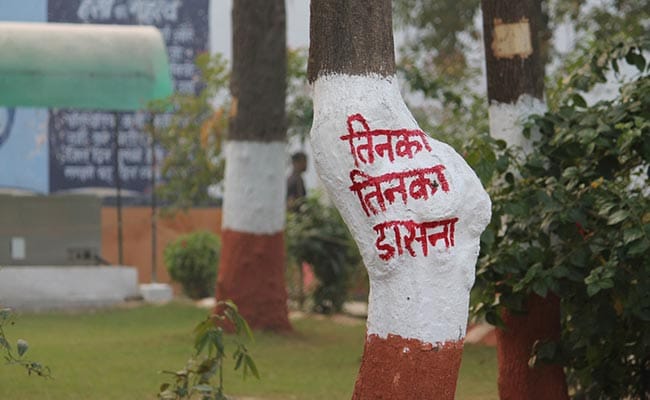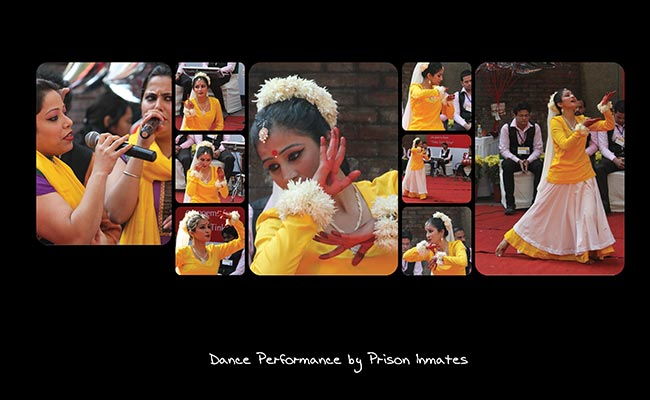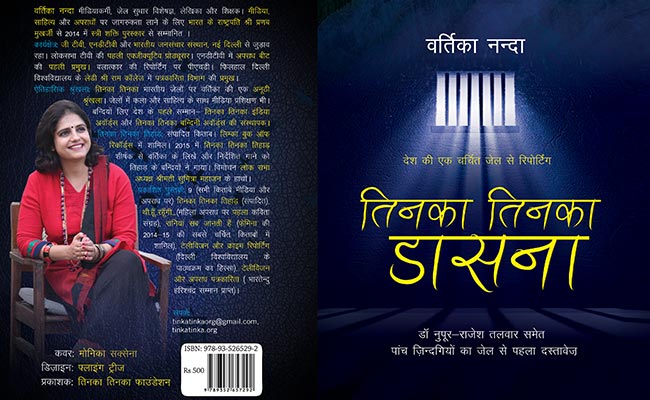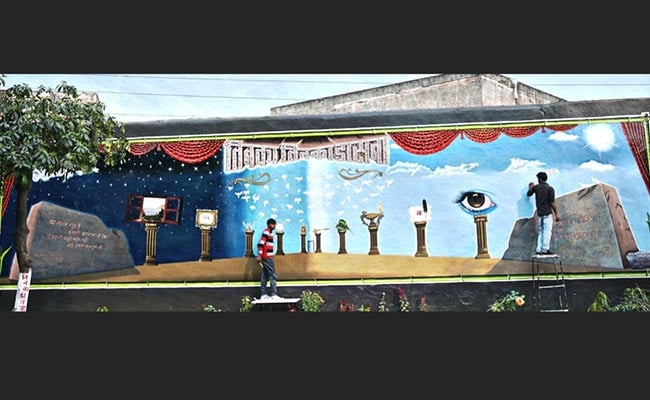ABSTRACT
A Sting Operation is an operation designed to catch a
person committing a crime by means of deception. A complicated confidence
game planned and executed with great care. The word "sting" derives
its origin from the American usage to mean a police undercover operation
designed to ensnare criminals. The word sting is synonymous for the expression "set
a trap to catch a crook" and this article uses the term in that sense. In
more refined terms, it can be called Investigative Journalism or Undercover
Journalism. Sting Operation is an information gathering exercise; it looks for
facts that are not easy to obtain by simple requests and searches, or those
that are actively being concealed, suppressed or distorted.
Keywords: Concealed, Journalism, Media, Personal
Freedom, Sting Operation.
INTRODUCTION
An informed citizenry the bedrock of a democracy, holding
the government accountable through voting and participation requires
investigative journalism which cannot sustain itself on asymmetric dissemination of information. In many
cases, the subjects of the reporting wish the matters under scrutiny to remain
undisclosed. Among the most popular programmes in India, are those
reporting on corruption and misdeeds of politicians and government officials?
'Candid camera', report many stories of the day the
bribe that the police inspector extracts from the victim of a crime before
agreeing to investigate, the 'fee' that the government officer charges for his
giving the order to make an electric connection, and the 'contribution' that a
company pays a member of Parliament before bringing up a legislative concern in
the Lok Sabha. For of all these things, do we really require
Sting Operations? At the same time, where such investigative work involves
the use of covert methods, it raises issues that tend to further blur the
line between law and ethics. Is deception legitimate when the aim is to tell
the truth?
Is any method justifiable no matter the working
conditions and the difficulties in getting information? Can television reporters use hidden
cameras to get a story? Can journalists use false identities to gain access to
information? The critical question that surfaces is "to what extent can
the media go and to what extent must a person be informed?"
STING OPERATIONS IN INDIA
Sting Operations are undertaken with a view to look
into the working of the government or to see whether the actions of an
individual are against public order. On the basis of purpose, sting operations
can be classified as positive or negative. Positive Sting Operation is one
which results in the interest of the society, which pierces the veils of
the working of the government.
It is carried out in the public interest. Due to
positive sting operation society is benefited; as it makes government
responsible and accountable. It leads to transparency in government
and governance. On the other hand negative sting operations do not benefit
the society, but they do harm the society and its individuals. They
unnecessarily violate the privacy of the individuals without any beneficial
results for the society. This type of stings, if allowed, hamper the freedom of
the individuals and restrict their rights. Here are few examples which we can distinguish as positive and negative sting
operations.
Positive Sting Operations
1. Sting operations on ultra-sound centers carried out
by the Health officers in Karnataka for serious enforcement of Pre-Natal
Diagnostic Techniques Act which bans sex determination of fetuses and consequent abortion of
female ones to stop female foeticide.
2. The Ministry (by the Cable Television Networks
Regulation Act and Programme Code), has prohibited the transmission of Cine
world channel for 30 days for showing objectionable content, as it
"offended good taste and decency".
3. An operation by an online news site called Tehelka
to catch top politicians and army officers taking bribe from journalists posing as businessmen.
4. An operation in which a journalist posing as a
struggling actress met actor Shakti Kapoor, who promised in the televised footage that his
secretary would introduce her to movie producers and directors.
Negative Sting Operations
Instances over the years have shown that though sting
operations do expose corruption in some cases, sometimes they seriously violate the rules of
journalism in the pursuit of profit and shortterm sensationalism.
1. The Delhi High Court, issued notices to the Delhi
government and city police after taking Suo moto cognizance of media reports alleging that a
sting operation carried out by a TV channel, which claimed to have exposed a sex racket
run by a government school teacher Uma Khurana, for allegedly luring her pupils into
prostitution has now been revealed to be completely fabricated and was fake and distorted.
2. The Supreme Court, issued notices to a private news
channel and its reporter for carrying out a sting operation carried out in the year 2004,
which allegedly showed a non-bailable warrant could be procured against any person by paying
a hefty amount in the court.
These incidents are an example of how a sting
operation can go wrong and become an exercise in trapping an innocent person. India TV's chief
editor, Rajat Sharma, said that there was no violation of privacy in exposing such matters as
political corruption or the trading of jobs for sex in Bollywood; a practice known in movie and
theatrical business lore as the casting couch.
DO WE REALLY NEED STING OPERATIONS?
The media plays an important role in a democratic
society. It acts as the fourth institute outside the government. Sting
operations are methods of uncovering information. Although, the
Indian constitution does not expressly mention the liberty of the press,
it is evident that the liberty of the press is included in the freedom of
speech and expression under Article 19(1) (a). Various constitutions have
guaranteed free press or media as a fundamental right. Freedom of press
is a special right under Article 19(1) (a) of the constitution of India,
1950, but it has certain restrictions. The democratic credentials are
judged by the extent of freedom the media enjoys in a particular state.
Further the media has a right to impart the information to the
public. Freedom of speech includes freedom to communicate, advertise,
publish or propagate ideas and the dissemination of information.
Furthermore Article 19(1) also incorporates within itself right to receive
information about any event, happening or incident.
In Romesh Thappar v. State of Madras, court
observed,"...The public interest of freedom of discussion (of which the
freedom of press is one aspect) stems from the requirement that members of a democratic society should be sufficiently
informed so that they may influence intelligently the decisions which may
affect themselves."
This concept of people's right to know which was found
so essential for democracy was located by the court in Article 19(1) (a) in
Bennett Coleman and Co. v. Union of India observing thus, "Although
Article 19 (1) (a) doesn't mention freedom of press, it is the settled
view of the court that freedom of speech and expression includes freedom of the
press and circulation."
The court held," Press has a fundamental right to
express itself; the community has a right to be supplied with information; and
the government has a duty to educate the people within the limits of its
resources."
Justice Mathews ruled in the case of State of Uttar
Pradesh v. Raj Narain, " the people of this country have a right to
know every public act, everything that is done in a public way by
their public functionaries. Their right to know is derived from the
concept of freedom of speech."
In S.P. Gupta v. Union of India,"No democratic
government can survive without accountability and the basic postulate of
accountability is that people should have the information about the working of
the government."
In Prabha Dutt v. Union of India, the Supreme Court
upheld the right claimed by the press to interview prisoners that the right claimed by the
Press was not the right to express any particular view or opinion but
right to means of information through the medium of interview of
the prisoners.
WHY NO TO STING OPERATIONS?
With great power comes great responsibility, therefore
the freedom under Article 19(1) (a) is correlative of the duty not to violate any law. Every
institution is liable to be abused, and every liberty, if left unbridled,
may lead to disorder and anarchy. Television channels in a bid to increase
their TRP ratings are resorting to sensationalized journalism. Sting Operations
have now become the order of the day. The carrying out of a sting operation may
be an expression of the right to free press but it carries with it an
indomitable duty to respect the privacy of others.
Article 19(2) - An Exception to Article 19(1): It is
however pertinent to mention that, freedom of speech and expression of the press is not absolute
but is qualified by certain clearly defined limitations under Article
19(2) in the interests of the public.
In Romesh Thappar v. State of Madras,8 and Brij
Bhushan v. State of Delhi,9 the court firmly expressed its view that there
could not be any kind of restriction on the freedom of speech
and expression other than those mentioned in Art 19(2) and thereby made it
clear that there could not be any interference with that freedom in the
name of public interest even when Clause (2) of Article 19 was
subsequently substituted under the constitution (First Amendment) Act,
1951 by a new clause which permitted the imposition of reasonable
restrictions on the freedom of speech and expression of media.
Against Right to Privacy
The individual who is the subject of a press or TV
item has his or her personlaity, reputation or career dashed to the ground
after the media exposure. He too has a fundamental right to live with dignity and respect and a right to
privacy guaranteed to him under Article 21 of the constitution. The Supreme Court in Kharak Singh
v. State of Uttar Pradesh,10 held that the right to privacy is inherent
under Article 21. The Delhi High Court observed that right to privacy that
flows from Article 21 cannot be invoked against private entities. It cannot
be denied that it is of practical importance that a
precarious balance between the fundamental right to expression and the right to
ones privacy be maintained.
The right to privacy is an alleged human right, which
may restrain both government and private party action that threatens the
privacy of individuals. It has been recognized as a fundamental right by the
Supreme Court under article 21.
The Supreme Court in R. Rajagopal and Another v. State
of Tamil Nadu and Others11 are true reminiscence of the limits of freedom of
press with respect to privacy, "A citizen has a right to safeguard the
privacy of his own, his family, marriage, procreation, motherhood,
child bearing and education among other matters. No
one can publish anything concerning the above matters without his consent
- whether truthful or otherwise and whether laudatory or critical. If he
does so, he would be violating the right to privacy of the person concerned
and would be liable in an action for damages. Position may, however, be
different, if a person voluntarily thrusts himself into controversy."
Against Public Morality
There is the classic ethical problem that haunts all
sting operations: can you hold somebody responsible for a crime that he would not have
committed if you hadn't encouraged him? The essence of all entrapment is
that you promise a man a reward for breaking the law and then, apprehend
him when he takes the bait. All sting operations involve making people
commit crimes that they would not otherwise have committed and are therefore
immoral. It is against the public morality and decency and hence falls
within the purview of Article 19 (2). The 17th Law Commission in its 200th
report has made recommendations to the Centre to enact a law to prevent
the media from interfering with the privacy rights of the individuals.
PROBLEMS WITH STING OPERATIONS
The classic ethical problem that haunts all sting
operations: - can you hold somebody responsible for a crime that he would not have
committed if you essence of all entrapment is that you promise a man a
reward for breaking the law and then, apprehend him when he takes the bait. A defence that
can be taken by the accused that the act had been committed as a result of
inducement, and which he (the accused) did not intend himself to commit,
or, in cases where lack of consent constitutes the offence, such as rape,
that accused, the impression given was that an offence had not been committed. Fundamental
rights cannot be enforced against the individual or private entity: When
Maneka and a Little Ma because of this lack of legislation that we have
numerous Sting Operations taking place almost daily thereby obtruding upon
individual privacy. However, despite the growing invasion of privacy,
there is no Indian legislation that directly protects the privacy rights of
individuals against individuals.
Conflict of Laws
Although on one hand, the constitution confers the
fundamental right of freedom of the press, Article 105 (2) provides
certain restrictions on the publications of the proceedings in Parliament. In the famous Searchlight Case,13 the
Supreme Court held that, the publication by a newspaper of certain parts
of the speech of members in the House, which were ordered to be expunged
by the Speaker constituted a breach of privilege. Another major problem
which we face today is against whom the sting operation is allowed?
Some are of the opinion that it must be allowed
against the public servants. The definition of occurs that whether we can have sting operation
against the public servants when they are not in their course of duty?
There are so many problems which may arise because of the reason that we
do not have a proper legislation. We can say the root of all these problems is
the lack of legislation.
POSITION OF STING OPERATION IN INDIA
In India we have no specific law which governs such
operation; also, we have no judicial pronouncements which may guide such operations or the
acts of the media. A person can go to the court under different laws to
protect his rights and freedom. We have wiretapping which is a part of
sting operation is regulated under the Telegraph Act of 1885. In the 1996
decision, The court also laid out guidelines for wiretapping by the
government, which provides for who can tap phones and under what
circumstances. Only the Union Home Secretary, or his counterpart in the
states, can issue an order for a tap. The government is also required to
show that the information sought cannot to be obtained through any other
means. The court mandated the development of a high-level committee to
review the legality of each wiretap. Tapped phone calls are not accepted
as primary evidence in Indian courts.
Apart from the common law, the Supreme Court has
recognized a constitutional origin as well. So, firstly, a private action
for damages may lie for an unlawful invasion of privacy under the Law of
Torts. These sting operations also violate right to privacy which according to
the Supreme Court is guaranteed under Article 21- right to life and
personal liberty. As the freedom of expression guarantee in Article 19(1)
(a) is not absolute, as the constitution provides for Article 19(2) which
protects the public interest morality and decency. A person who
welcomes media interest in his life will not be able to claim a right to
privacy as easily the onus of proving that a particular publication was
in public interest lies with the media house.Undoubtedly, the jurisprudence of
the Supreme Court will certainly influence interpretation; with a genuine
motive to create awareness of wrongdoing, cannot be proscribed or prohibited.
FINAL REMARKS
The Union Information and Broadcasting Ministry must
favour the introduction of a clause to make a clear distinction stories with political
implications shall be allowed, as any attempt to proceed against them would be
seen as an effort to stifle the media.
What journalists and editors need to determine is who
will benefit as a result of the reporting. If journalism is committed to democratic
accountability, then the question that needs to be asked is whether the public benefits as a result of
specific investigative reports. Does the press fulfill its social
responsibility in revealing wrongdoing? Whose interests are being affected?
Whose rights are being invaded? Is the issue at stake
a matter of legitimate public interest?
What the regulatory body will need to determine is who
will benefit as a result of the reporting.
Is the issue at stake a matter of legitimate public
interest? These are some questions which need to be answered when going
for a sting operation or going for making legislation on it.
The legislation must govern the conduct of the media
and must define the extent media can it is only the federal government and the FBI
alone that has the right to use a hidden camera and go for
sting operation. In India too somebody like CBI or any other body must
only be legalized to perform sting and their conduct must be regulated
through the legislations. This body must not be immune to any legal
proceedings. There must be a proper authority like court or
Attorney General, whose permission must be sought on proper proof against
the subject of the sting. The subject of the sting must have the evidence
of criminality.
Court should take observations about the same. Problem
with the media is that it only campaigns for cases which appeal to its market and its
imagination, which may result in its good reputation in front of the society.
To avoid falling into that trap, the sting operations
need a code of conduct. Laws too, should be strengthened in this regard. Sting operations are
completely justified if they are carried out with the protocol that has
been talked about.
Article by Deevanshu Shrivastava
SOURCE:http://www.ijli.in/assets/docs/DeevanshuShrivastava.pdf









